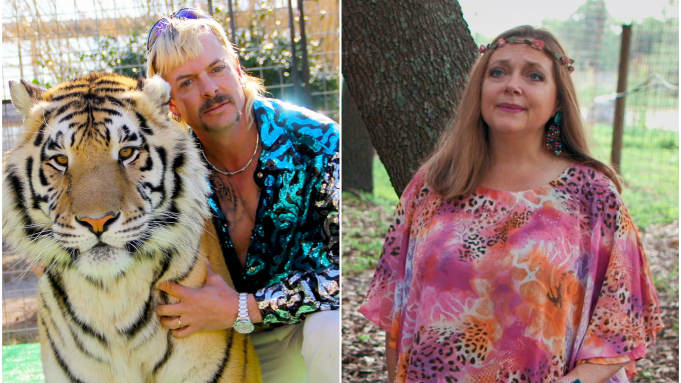WASHINGTON, D.C] – U.S. Senators Richard Blumenthal (D-CT), Susan Collins (R-ME), Tom Carper (D-DE), and Richard Burr (R-NC) are introducing the Big Cat Public Safety Act today to protect public safety and improve animal welfare. This bipartisan, bicameral legislation prohibits the ownership of big cats like lions and tigers, and makes it illegal for exhibitors to allow public contact with cubs.
“This bipartisan measure would help stop exploitation of big cats like tigers and lions, and reduce safety risks,” said Blumenthal. “My Big Cat Public Safety Act would prohibit private ownership of these beautiful but powerful predators, which deserve to live in the wild. They should never be pets, even as cubs, kept in captivity dangerously for entertainment. I’m thankful for the groundswell of public support for this bill and look forward to working with my colleagues from both sides of the aisle to ensure it becomes law.”
“Big cats like lions, tigers, and cheetahs belong in their natural habitats, not in the hands of private owners where they are too often subject to cruelty or improper care,” said Collins. “Our bipartisan bill would prohibit the private ownership of big cats, which threatens the safety of the animals and the public and harms conservation efforts. I have long advocated for policies that improve the welfare of animals, and I urge my colleagues to join me in supporting this legislation.”
“I’m pleased to join Senators Blumenthal, Burr, and Collins in introducing the Big Cat Public Safety Act to address the treatment of privately-owned tigers and other big cats in our country,” said Carper. “This legislation is a win-win. It would prevent big cats from living in inhumane conditions and protect the public from the safety implications of these beautiful creatures being kept as pets.”
Private ownership of big cats raises significant public safety, animal welfare, and conservation concerns. It is estimated that thousands of big cats – including lions, tigers, leopards, cheetahs, jaguars, and cougars – are privately owned and held captive in insecure and unsafe conditions. Cub-handling attractions and petting zoos cause irreparable harm to the cubs, which are often separated from their mothers at an extremely young age, and pose a danger to humans, who may be bitten or scratched. There have been more than 700 incidents in the United States involving big cats, including hundreds of human injuries, maulings and deaths.
The Netflix series “Tiger King” released in March 2020 greatly raised public awareness of the rampant animal welfare abuses and public safety issues involved in private ownership of big cats. The series showed the abysmal conditions big cats including tigers, lions, and leopards, as well as their cubs, live in throughout the United States, and the immense risks private ownership of these animals poses for the individuals who keep them, the general public, and the animals themselves.
The Big Cat Public Safety Act would prohibit the possession of big cats by unlicensed individuals. This bill also restricts direct contact between the public and big cats, including cubs.
The legislation is endorsed by numerous animal welfare, conservation, and law enforcement organizations, including the Association of Zoos & Aquariums, National Sheriffs’ Association, Fraternal Order of Police, Animal Welfare Institute, International Fund for Animal Welfare, The Humane Society Legislative Fund, The Humane Society of the United States, Humane Society Veterinary Medical Association, World Wildlife Fund, Endangered Species Coalition, Natural Resources Defense Council, Animal Legal Defense Fund, Big Cat Rescue, and the American Society for the Prevention of Cruelty to Animals.
A similar version of the bill was introduced in the U.S. House of Representatives in January by U.S. Representatives Mike Quigley (D-IL) and Brian Fitzpatrick (R-PA).

